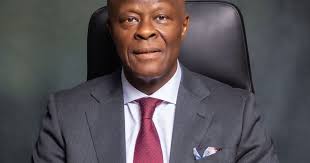The Federal Government has disbursed N330 billion to poor and vulnerable Nigerians through the National Social Safety-net Coordinating Office (NASSCO). The Minister of Finance and Coordinating Minister of the Economy, Mr. Wale Edun, made the disclosure yesterday while briefing journalists in Abuja.
Edun explained that the payments were drawn from an $800 million World Bank facility and are part of President Bola Tinubu’s social protection measures. According to him, the initiative was designed to help millions of poor households cushion the impact of rising prices following the removal of fuel subsidy and the floating of the naira.
He said there are about 19.7 million poor and vulnerable households, representing more than 70 million individuals, on the National Social Register. Out of this figure, 15 million households were selected to benefit from the programme.
“So far, about 8.5 million households have received at least one tranche of N25,000 under the programme. Some have received two payments, while others have received three. We expect that the remaining 7 million households will receive their transfers before the end of the year,” Edun said.
The minister assured that the programme was being run on a strong and transparent system that links beneficiaries to their National Identity Number (NIN). Payments are made digitally through bank accounts or mobile wallets to prevent leakages and ensure accountability.
“This is part of the President’s plan to provide a safety net for the poorest and most vulnerable. The social protection programme is firmly back on track. People are identified biometrically and paid directly. It is a very robust and sustainable system,” he explained.
Edun further noted that social safety nets are essential in every modern economy and that Nigeria was now building a lasting structure to support the poor on a long-term basis.
“What Nigeria now has is a reliable system for reaching whichever targeted group we want to reach. It gives the country the basis for a modern social protection system. That was the promise of Mr. President, and that is what he is putting in place. Alongside other economic reforms, there is now a sustainable way of reaching the poor directly,” he said.
The minister also disclosed that going forward, the Federal Government would make provisions in annual budgets to fund the programme. He said the inclusion of special funds would ensure that the initiative continues beyond the current financing from development partners.
“We expect that there will be budgetary allocations each year to provide direct assistance to the poor. The goal is to have a permanent system that can respond quickly to economic shocks and deliver help where it is needed most,” Edun added.
Providing further clarification, the National Coordinator of NASSCO, Funmi Olotu, explained that the President insisted on linking payments to the NIN to eliminate fraud and ghost beneficiaries.
She noted that the use of direct debit transfers into bank accounts or mobile wallets was part of the President’s directive to avoid traditional cash payments.
“Mr. President said no more manual payments. All funds must go directly into beneficiaries’ accounts. That is why you see some households receiving first tranche, second tranche, and even third tranche payments, depending on when their verification was completed,” Olotu stated.
She also assured that the system in place has made the process more transparent, with verifiable records of who has been paid and who is awaiting payment.
The cash transfer initiative is one of the key elements of the Tinubu administration’s economic support programme, which was introduced to cushion the hardship faced by millions of Nigerians due to the reforms. Beneficiaries are expected to receive N25,000 monthly for three months.
Observers note that while the programme provides relief to many poor families, questions remain on its sustainability and how it can be scaled up to cover more people in need. However, government officials have said the long-term plan is to embed the scheme into the national budget as part of Nigeria’s social protection framework.
